- Home
- Vladimir Nabokov
Look at the Harlequins! Page 19
Look at the Harlequins! Read online
Page 19
“Ekh!” he exclaimed, “Ekh, Vadim Vadimovich dorogoy (dear), aren’t you ashamed of deceiving our great warm-hearted country, our benevolent, credulous government, our overworked Intourist staff, in this nasty infantile manner! A Russian writer! Snooping! Incognito! By the way, I am Oleg Igorevich Orlov, we met in Paris when we were young.”
“What do you want, merzavetz (you scoundrel)?” I coldly inquired as he plopped into the chair on my left.
He raised both hands in the “see-I’m-unarmed” gesture: “Nothing, nothing. Except to ruffle (potormoshit’) your conscience. Two courses presented themselves. We had to choose. Fyodor Mihaylovich [?] himself had to choose. Either to welcome you po amerikanski (the American way) with reporters, interviews; photographers, girls, garlands, and, naturally, Fyodor Mihaylovich himself [President of the Union of Writers? Head of the ‘Big House’?]; or else to ignore you—and that’s what we did. By the way: forged passports may be fun in detective stories, but our people are just not interested in passports. Aren’t you sorry now?”
I made as if to move to another seat, but he made as if to accompany me there. So I stayed where I was, and feverishly grabbed something to read—that book in my coat pocket.
“Et ce n’est pas tout!” he went on. “Instead of writing for us, your compatriots, you, a Russian writer of genius, betray them by concocting, for your paymasters, this (pointing with a dramatically quivering index at A Kingdom by the Sea in my hands), this obscene novelette about little Lola or Lotte, whom some Austrian Jew or reformed pederast rapes after murdering her mother—no, excuse me—marrying mama first before murdering her—we like to legalize everything in the West, don’t we, Vadim Vadimovich?”
Still restraining myself, though aware of the uncontrollable cloud of black fury growing within my brain, I said: “You are mistaken. You are a somber imbecile. The novel I wrote, the novel I’m holding now, is A Kingdom by the Sea. You are talking of some other book altogether.”
“Vraiment? And maybe you visited Leningrad merely to chat with a lady in pink under the lilacs? Because, you know, you and your friends are phenomenally naïve. The reason Mister (it rhymed with ‘Easter’ in his foul serpent-mouth) Vetrov was permitted to leave a certain labor camp in Vadim—odd coincidence—so he might fetch his wife, is that he has been cured now of his mystical mania—cured by such nutcrackers, such shrinkers as are absolutely unknown in the philosophy of your Western sharlatany. Oh yes, precious (dragotsennyy) Vadim Vadimovich—”
The swing I dealt old Oleg with the back of my left fist was of quite presentable power, especially if we remember—and I remembered it as I swung—that our combined ages made 140.
There ensued a pause while I struggled back to my feet (unaccustomed momentum had somehow caused me to fall from my seat).
“Nu, doli v mordu. Nu, tak chtozh?” he muttered (Well, you’ve given me one in the mug. Well, what does it matter?). Blood blotched the handkerchief he applied to his fat muzhikian nose.
“Nu, dali,” he repeated and presently wandered away.
I looked at my knuckles. They were red but intact. I listened to my wristwatch. It ticked like mad.
Part Six
1
Speaking of philosophy, I recalled when starting to readjust myself, very temporarily, to the corners and crannies of Quirn, that somewhere in my office I kept a bundle of notes (on the Substance of Space), prepared formerly toward an account of my young years and nightmares (the work now known as Ardis). I also needed to sort out and remove from my office, or ruthlessly destroy, a mass of miscellanea which had accumulated ever since I began teaching.
That afternoon—a sunny and windy September afternoon—I had decided, with the unaccountable suddenness of genuine inspiration, that 1969–1970 would be my last term at Quirn University. I had, in fact, interrupted my siesta that day to request an immediate interview with the Dean. I thought his secretary sounded a little grumpy on the phone; true, I declined to explain anything beforehand, beyond confiding to her, in an informal bantering manner, that the numeral “7” always reminded me of the flag an explorer sticks in the cranium of the North Pole.
After setting out on foot and reaching the seventh poplar I realized that there might be quite a load of papers to bring from my office, so I went back for my car, and then had difficulty in finding a place to park near the library where I intended to return a number of books which were months, if not years, overdue. In result, I was a little late for my appointment with the Dean, a new man and not my best reader. He consulted, rather demonstratively, the clock and muttered he had a “conference” in a few minutes at some other place, probably invented.
I was amused rather than surprised by the vulgar joy he did not trouble to conceal at the news of my resignation. He hardly heard the reasons which common courtesy impelled me to give (frequent headaches, boredom, the efficiency of modern recording, the comfortable income my recent novel supplied, and so forth). His whole manner changed—to use a cliché he deserves. He paced to and fro, positively beaming. He grasped my hand in a burst of brutal effusion. Certain fastidious blue-blooded animals prefer surrendering a limb to the predator rather than suffer ignoble contact. I left the Dean encumbered with a marble arm that he kept carrying in his prowlings like a trayed trophy, not knowing where to put it down.
So off to my office I stalked, a happy amputee, more than ever eager to clean up drawers and shelves. I began, however, by dashing off a note to the President of the University, another new man, informing him with a touch of French malice, rather than English “malice,” that my entire set of one hundred lectures on European Masterpieces was about to be sold to a generous publisher who offered me an advance of half-a-million bucks (a salubrious exaggeration), thus making transmissions of my course no longer available to students, best regards, sorry not to have met you personally.
In the name of moral hygiene I had got rid long ago of my Bechstein desk. Its considerably smaller substitute contained note paper, scratch paper, office envelopes, photo-stats of my lectures, a copy of Dr. Olga Repnin (hardback) which I had intended for a colleague (but had spoiled by misspelling his name), and a pair of warm gloves belonging to my assistant (and successor) Exkul. Also three boxfuls of paper clips and a half-empty flask of whisky. From the shelves, I swept into the wastebasket, or onto the floor in its vicinity, heaps of circulars, separata, a displaced ecologist’s paper on the ravages committed by a bird of some sort, the Ozimaya Sovka (“Lesser Winter-Crop Owl”?), and the tidily bound page proofs (mine always come in the guise of long, horribly slippery and unwieldy snakes) of picaresque trash, full of cricks and punts, imposed on me by proud publishers hoping for a rave from the lucky bastard. A mess of business correspondence and my tractatule on Space I stuffed into a large worn folder. Adieu, lair of learning!
Coincidence is a pimp and cardsharper in ordinary fiction but a marvelous artist in the patterns of fact recollected by a non-ordinary memoirist. Only asses and geese think that the re-collector skips this or that bit of his past because it is dull or shoddy (that sort of episode here, for example, the interview with the Dean, and how scrupulously it is recorded!). I was on the way to the parking lot when the bulky folder under my arm—replacing my arm, as it were—burst its string and spilled its contents all over the gravel and grassy border. You were coming from the library along the same campus path, and we crouched side by side collecting the stuff. You were pained you said later (zhalostno bylo) to smell the liquor on my breath. On the breath of that great writer.
I say “you” retroconsciously, although in the logic of life you were not “you” yet, for we were not actually acquainted and you were to become really “you” only when you said, catching a slip of yellow paper that was availing itself of a bluster to glide away with false insouciance:
“No, you don’t.”
Crouching, smiling, you helped me to cram everything again into the folder and then asked me how my daughter was—she and you had been schoolmates some fifteen y
ears ago, and my wife had given you a lift several times. I then remembered your name and in a photic flash of celestial color saw you and Bel looking like twins, silently hating each other, both in blue coats and white hats, waiting to be driven somewhere by Louise. Bel and you would both be twenty-eight on January 1, 1970.
A yellow butterfly settled briefly on a clover head, then wheeled away in the wind.
“Metamorphoza,” you said in your lovely, elegant Russian.
Would I care to have some snapshots (additional snapshots) of Bel? Bel feeding a chipmunk? Bel at the school dance? (Oh, I remember that dance—she had chosen for escort a sad fat Hungarian boy whose father was assistant manager of the Quilton Hotel—I can still hear Louise snorting!)
We met next morning in my carrel at the College Library, and after that I continued to see you every day. I will not suggest, LATH is not meant to suggest, that the petals and plumes of my previous loves are dulled or coarsened when directly contrasted with the purity of your being, the magic, the pride, the reality of your radiance. Yet “reality” is the key word here; and the gradual perception of that reality was nearly fatal to me.
Reality would be only adulterated if I now started to narrate what you know, what I know, what nobody else knows, what shall never, never be ferreted out by a matter-of-fact, father-of-muck, mucking biograffitist. And how did your affair develop, Mr. Blong? Shut up, Ham Godman! And when did you decide to leave together for Europe? Damn you, Ham!
See under Real, my first novel in English, thirty-five years ago!
One little item of subhuman interest I can disclose, however, in this interview with posterity. It is a foolish, embarrassing trifle and I never told you about it, so here goes. It was on the eve of our departure, around March 15, 1970, in a New York hotel. You were out shopping. (“I think”—you said to me just now when I tried to check that detail without telling you why—“I think I bought a beautiful blue suitcase with a zipper”—miming the word with a little movement of your dear delicate hand—“which proved to be absolutely useless.”) I stood before the closet mirror of my bedroom in the north end of our pretty “suite,” and proceeded to take a final decision. All right, I could not live without you; but was I worthy of you—I mean, in body and spirit? I was forty-three years older than you. The Frown of Age, two deep lines forming a capital lambda, ascended between my eyebrows. My forehead, with its three horizontal wrinkles that had not really overasserted themselves in the last three decades, remained round, ample and smooth, waiting for the summer tan that would scumble, I knew, the liver spots on my temples. All in all, a brow to be enfolded and fondled. A thorough haircut had done away with the leonine locks; what remained was of a neutral, grayish-dun tint. My large handsome glasses magnified the senile group of wart-like little excrescences under each lower eyelid. The eyes, once an irresistible hazel-green, were now oysterous. The nose, inherited from a succession of Russian boyars, German barons, and, perhaps (if Count Starov who sported some English blood was my real father), at least one Peer of the Realm, had retained its bone hump and tip rime, but had developed on the frontal flesh, within its owner’s memory, an aggravating gray hairlet that grew faster and faster between yanks. My dentures did not do justice to my former attractively irregular teeth and (as I told an expensive but obtuse dentist who did not understand what I meant) “seemed to ignore my smile.” A furrow sloped down from each nosewing, and a jowl pouch on each side of my chin formed in three-quarter-face the banal flexure common to old men of all races, classes, and professions. I doubted that I had been right in shaving off my glorious beard and the trim mustache that had lingered, on try, for a week or so after my return from Leningrad. Still, I passed my face, giving it a C-minus mark.
Since I had never been much of an athlete, the deterioration of my body was neither very marked, nor very interesting. I gave it a C plus, mainly for my routing tank after tank of belly fat in a war with obesity waged between intervals of retreat and rest since the middle Fifties. Apart from incipient lunacy (a problem with which I prefer to deal separately), I had been in excellent health throughout adulthood.
What about the state of my art? What could I offer to you there? You had studied, as I hope you recall, Turgenev in Oxford and Bergson in Geneva, but thanks to family ties with good old Quirn and Russian New York (where a last émigré periodical was still deploring, with idiotic innuendoes, my “apostasy”) you had followed pretty closely, as I discovered, the procession of my Russian and English harlequins, followed by a tiger or two, scarlet-tongued, and a libellula girl on an elephant. You had also studied those obsolete photocopies—which proved that my method avait du bon after all—pace the monstrous accusations leveled at them by a pack of professors in envious colleges.
As I peered, stripped naked and traversed by opaline rays, into another, far deeper mirror, I saw the whole vista of my Russian books and was satisfied and even thrilled by what I saw: Tamara, my first novel (1925): a girl at sunrise in the mist of an orchard. A grandmaster betrayed in Pawn Takes Queen. Plenilune, a moonburst of verse. Camera Lucida, the spy’s mocking eye among the meek blind. The Red Top Hat of decapitation in a country of total injustice. And my best in the series: young poet writes prose on a Dare.
That Russian batch of my books was finished and signed and thrust back into the mind that had produced them. All of them had been gradually translated into English either by myself or under my direction, with my revisions. Those final English versions as well as the reprinted originals would be now dedicated to you. That was good. That was settled. Next picture:
My English originals, headed by the fierce See under Real (1940), led through the changing light of Esmeralda and Her Parandrus, to the fun of Dr. Olga Repnin and the dream of A Kingdom by the Sea. There was also the collection of short stories Exile from Mayda, a distant island; and Ardis, the work I had resumed at the time we met—at the time, too, of a deluge of postcards (postcards!) from Louise hinting at last at a move which I wanted her to be the first to make.
If I estimated the second batch at a lower value than the first, it was owing not only to a diffidence some will call coy, others, commendable, and myself, tragic, but also because the contours of my American production looked blurry to me; and they looked that way because I knew I would always keep hoping that my next book—not simply the one in progress, like Ardis—but something I had never attempted yet, something miraculous and unique, would at last answer fully the craving, the aching thirst that a few disjunct paragraphs in Esmeralda and The Kingdom were insufficient to quench. I believed I could count on your patience.
2
I had not the slightest desire to reimburse Louise for being forced to shed me; and I hesitated to embarrass her by supplying my lawyer with the list of her betrayals. They were stupid and sordid, and went back to the days when I still was reasonably faithful to her. The “divorce dialogue,” as Horace Peppermill, Junior, horribly called it, dragged on during the entire spring: You and I spent part of it in London and the rest in Taormina, and I kept putting off talks of our marriage (a delay you regarded with royal indifference). What really bothered me was having also to postpone the tedious statement (to be repeated for the fourth time in my life) that would have to precede any such talks. I fumed. It was a shame to leave you in the dark regarding my derangement.
Coincidence, the angel with the eyed wings mentioned before, spared me the humiliating rigmarole that I had found necessary to go through before proposing to each of my former wives. On June 15, at Gandora, in the Tessin, I received a letter from young Horace giving me excellent news: Louise had discovered (how does not matter) that at various periods of our marriage I had had her shadowed, in all sorts of fascinating old cities, by a private detective (Dick Cockburn, a staunch friend of mine); that the tapes of love calls and other documents were in my lawyer’s hands; and that she was ready to make every possible concession to speed up matters, being anxious to marry again—this time the son of an Earl. And on the same fatidic day,
at a quarter past five in the afternoon, I finished transcribing on 733 medium-sized Bristol cards (each holding about 100 words), with a fine-nibbed pen and in my smallest fair-copy hand, Ardis, a stylized memoir dealing with the arbored boyhood and ardent youth of a great thinker who by the end of the book tackles the itchiest of all noumenal mysteries. One of the early chapters contained an account (couched in an overtly personal, intolerably tortured tone) of my own tussles with the Specter of Space and the myth of Cardinal Points.

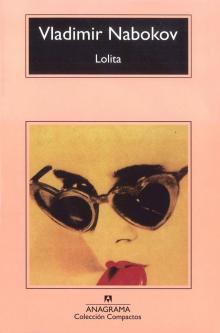 Lolita
Lolita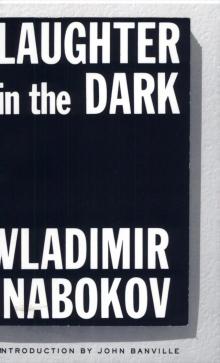 Laughter in the Dark
Laughter in the Dark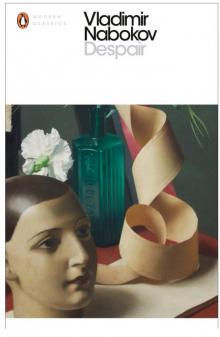 Despair
Despair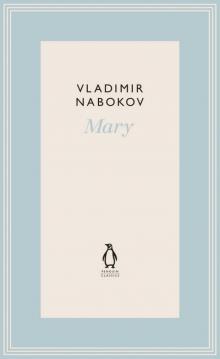 Mary
Mary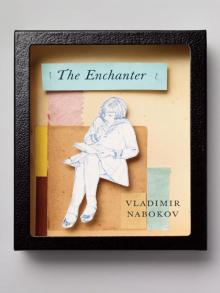 The Enchanter
The Enchanter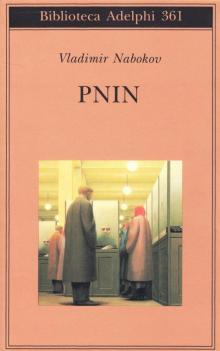 Pnin
Pnin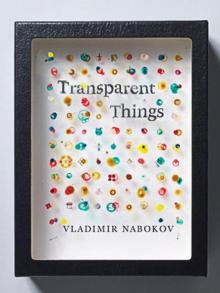 Transparent Things
Transparent Things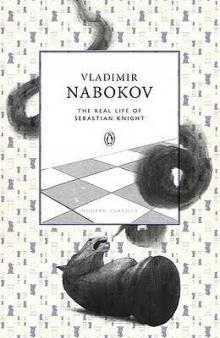 The Real Life of Sebastian Knight
The Real Life of Sebastian Knight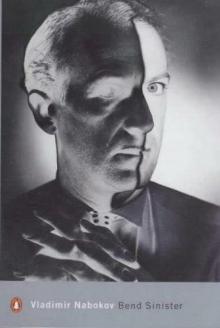 Bend Sinister
Bend Sinister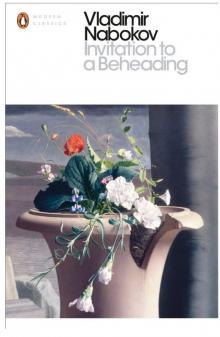 Invitation to a Beheading
Invitation to a Beheading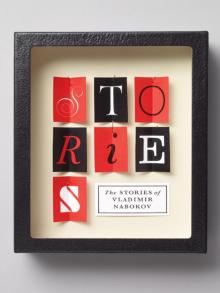 The Stories of Vladimir Nabokov
The Stories of Vladimir Nabokov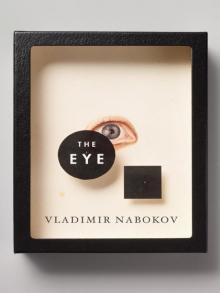 The Eye
The Eye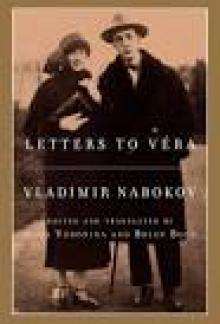 Letters to Véra
Letters to Véra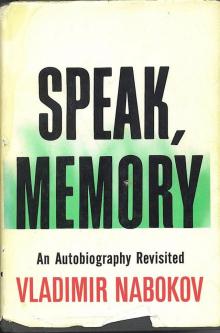 Speak, Memory
Speak, Memory The Gift
The Gift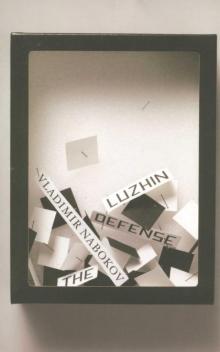 The Luzhin Defense
The Luzhin Defense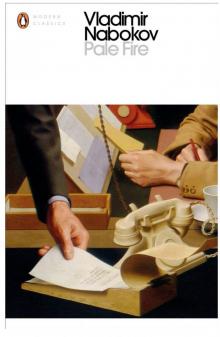 Pale Fire
Pale Fire Glory
Glory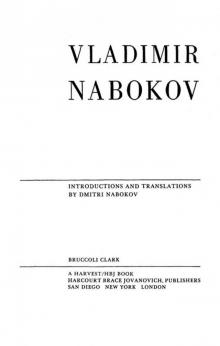 Man From the USSR & Other Plays
Man From the USSR & Other Plays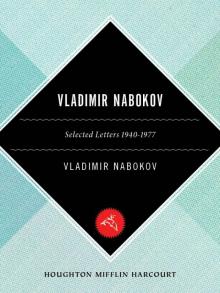 Vladimir Nabokov: Selected Letters 1940-1977
Vladimir Nabokov: Selected Letters 1940-1977 Strong opinions
Strong opinions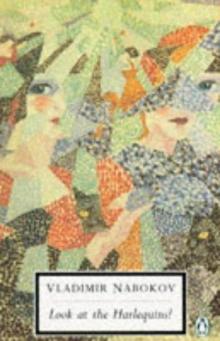 Look at the Harlequins!
Look at the Harlequins!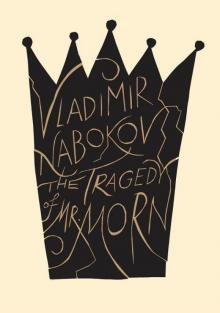 The Tragedy of Mister Morn
The Tragedy of Mister Morn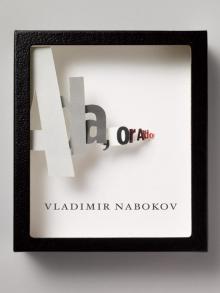 Ada, or Ardor
Ada, or Ardor Lectures on Russian literature
Lectures on Russian literature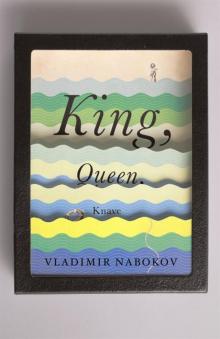 King, Queen, Knave
King, Queen, Knave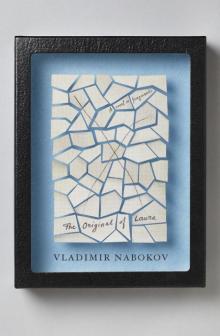 The Original of Laura
The Original of Laura